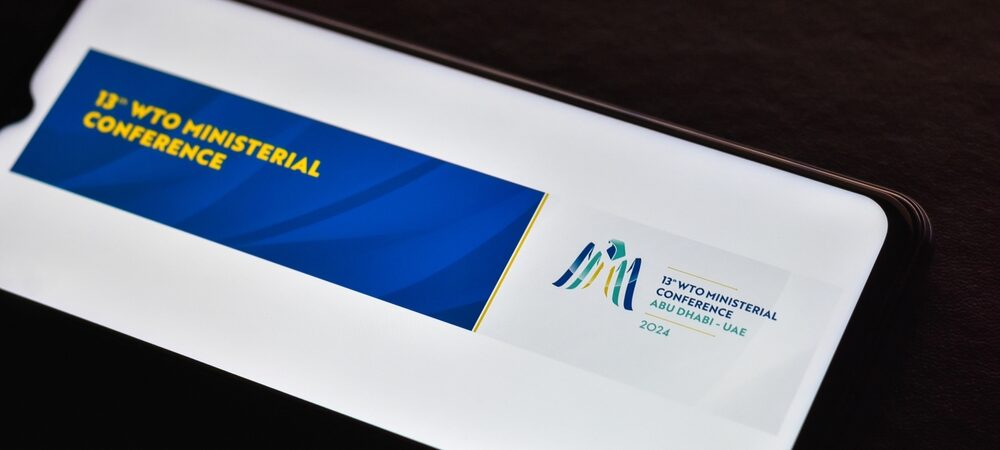COMMUNICATION FROM SOUTH AFRICA
The following communication, dated 29 February 2024, is being circulated at the request of the delegation of South Africa on behalf of the 65 Co-Sponsors of the IP/C/W/669/Rev.1 proposal and Brazil; Colombia; Paraguay and Sri Lanka.
_______________
1.1. The most solemn obligation of every government is to protect the life and health of its people.
1.2. The Director General of the World Health Organization (WHO) declared the COVID-19 situation a Public Health Emergency of International Concern (PHEIC) on 30 January 2020. The need for scaled-up access to diagnostics, treatments, vaccines and personal protective equipment (PPE) (“health products”) was manifest.
1.3. The co-sponsors approached Members of the World Trade Organization (WTO) with a proposal to temporarily waive certain provisions of the Agreement on Trade-Related Aspects of Intellectual Property Rights (TRIPS) to support the global COVID-19 pandemic response. This was in recognition that the intellectual property system is meant to provide a balance between providing incentives for bringing about innovation and rewarding creativity and promoting the broader public interest. In the area of public health, intellectual property objectives must also be balanced against realising the right to health, of which access to medicines and other health products is a central part. It was also in recognition that allowing legal monopolies may delay access to the requisite health products becoming available, as evidenced by disputes on infringement of intellectual property rights even at the height of the pandemic and that health products would be in global short supply drawing from the experience of previous pandemics and health emergencies. The co-sponsors believed that pooling financial and scientific resources is the only option for accelerating progress towards new vaccines, treatments and diagnostics.
1.4. Developing countries including the LDCs were gravely concerned. Much of the latest technology used to develop and manufacture necessary health products was owned and controlled by companies, governments and other institutions based in developed countries. Without access to this technology, the prospects for manufacturing and distributing health products would be restricted. Access to health products would be at the discretion of pharmaceutical companies from a handful of high-income countries.
1.5. The COVID-19 pandemic offered WTO Members an opportunity to act in solidarity by adopting a multilateral solution to help bolster the capability of developing countries to respond to a health crisis. Co-sponsors advocated for a multilateral solution so as to restore faith in multilateralism and avoid Members adopting self-help measures, thereby fragmenting the intellectual property system. An undesirable outcome that a time-bound and limited waiver could have helped prevent.
1.6. The WTO failed to deliver a comprehensive multilateral solution on the pandemic and even when it delivered on COVID-19 vaccines, this was too little too late. Rather than heed the call of the co-sponsors, non-proponents advocated for voluntary arrangements and donations as the only solution to equitable distribution. In reality, however, an inconsequentially small number of voluntary licenses were availed with strict conditionalities that did not assist to respond to the global crisis. And there were no voluntary licenses or any licensing arrangements when it came to the most-used vaccines in developed countries.
1.7. The COVID-19 virus is still with us, and the world needs therapeutics and diagnostics to ensure better management of its impact. If WTO Members were serious about providing an effective solution in the context of global solidarity, they needed to extend the TRIPS decision to diagnostics and therapeutics within six months as promised. However, over a year after the deadline, the non-proponents have stalled any possible outcome, ensuring that the world remains vulnerable not only to this pandemic but future pandemics. Resilience for future pandemics can be achieved through resolving challenges of equitable and affordable access to health products by addressing concentration of production, and building adequate manufacturing capacity, especially in regions with limited production.
1.8. Failure to deliver on a multilateral outcome to effectively address concerns on equitable and affordable access to health products including therapeutics and diagnostics, casts a dim light on the ability of the WTO to act in solidarity during an international emergency as recognized by the WHO. The IP barriers that challenge equitable and affordable access have prolonged this pandemic and remain unaddressed, threatening us in the next pandemic. The co-sponsors remain committed to addressing these concerns of developing countries including the LDCs in the context of health emergencies such as pandemics by advancing policy space for Members, along with full utilization of existing flexibilities in the TRIPS Agreement including Article 73.
__________
Click here to read the full document as it was circulated.

